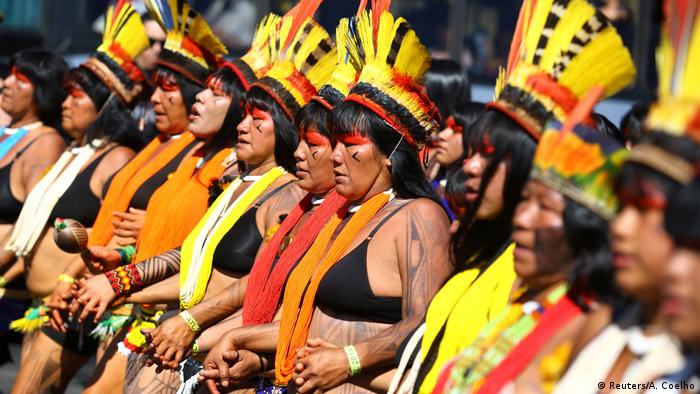
Tens of thousands of women took to the streets of Brazil’s capital of Brasilia on Wednesday
BRASILIA, Aug 15 (NNN-AGENCIES) — Tens of thousands of women took to the streets of Brazil’s capital on Wednesday to denounce President Jair Bolsonaro, in the third anti-government protest in the city in two days.
The huge demonstration in Brasilia comes as Bolsonaro faces increasing heat over rampant deforestation in the Amazon rainforest as well as education funding cuts, which have sparked nationwide protests by students and professors in recent months, including one in the capital on Tuesday.
The “March of the Margaridas” is named after Brazilian trade union leader Margarida Maria Alves, who was murdered in 1983 during the military dictatorship.
Held every four years, the protest demands better rural living conditions and protection of women’s rights.
Many of the thousands of tribal women who marched on Tuesday in protest against Bolsonaro’s “genocidal policies” joined Wednesday’s demonstration, which also condemned Bolsonaro’s plan to open up indigenous territory to mining and the government’s policy to increase the use of pesticides and weed killers.
Carrying bows, arrows and spears, the indigenous women marched toward the Congress, holding a banner that read “resist to in order to exist.”

Organizers said 100,000 people had participated in the demonstrations, while police said the figure was closer to 20,000. In either case, it would be the largest protest to take place in Brasilia since Bolsonaro was elected in January.
At the march, women denounced a wide range of issues relating to Bolsonaro’s tenure, from rampant deforestation in the Amazon rainforest, education cuts and even the culture of misogyny and machismo that plagues the country.
Protesters called the Brazilian president “misogynist, racist and homophobic.” The group also demanded the release of left-wing leader and former president Luiz Inacio “Lula” da Silva, who has been in jail on corruption charges.
Bolsonaro has been under fire both at home and abroad on all of these issues. In particular, evidence of accelerated deforestation during his presidency drew wide condemnation from international NGOs and criticism from governments across the globe.
The president boasted the approval of 55% of Brazilians when he came into office, but he has seen that support wane, as several polls currently put his approval rating at 30%. — NNN-AGENCIES


